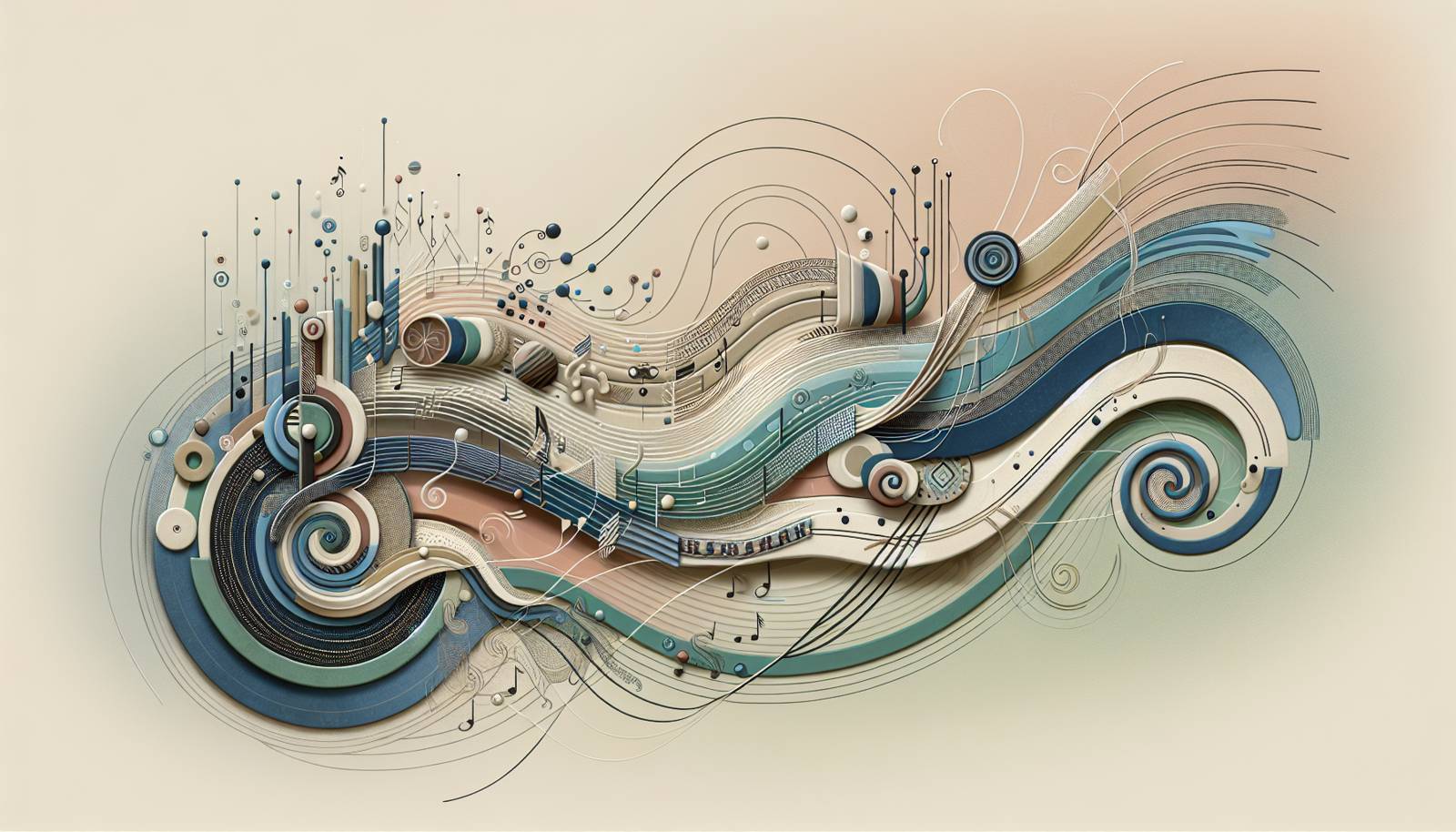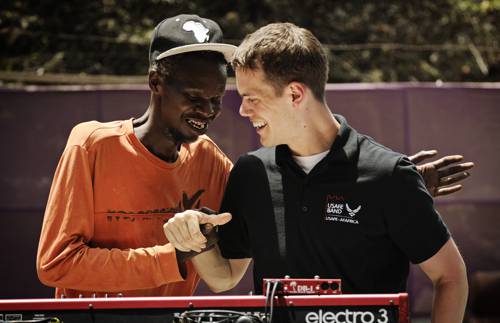
FAQ About The Cultural Impact of Diaspora Communities on Modern Music

What is a diaspora community in the context of music?
A diaspora community refers to a group of people who have spread or been dispersed from their homeland to various parts of the world. In the context of music, these communities carry their unique cultural and musical traditions to new regions, influencing local music scenes and contributing to the creation of new genres through a blend of cultures.

How do diaspora communities impact local music genres?
Diaspora communities contribute to local music genres by introducing new musical styles, instruments, and techniques that integrate with existing ones. This blending can lead to the creation of hybrid genres, enrich the local sound landscape, and foster an environment of innovation and creativity.

Can you give examples of music genres influenced by diaspora communities?
Some notable examples include reggae, which was influenced by African, Caribbean, and American music; jazz, which has roots in African American communities; and bhangra, which combines traditional Punjabi music with hip-hop and modern dance music. These genres illustrate how diasporic influences can reshape and redefine musical landscapes.

What role does technology play in the spread of diaspora-influenced music?
Technology plays a crucial role in the spread of diaspora-influenced music by providing platforms for sharing and collaboration over the internet. Social media, streaming services, and digital music production tools enable artists from diaspora communities to reach global audiences, connect with other artists, and innovate by combining diverse cultural elements.

How does the concept of 'fusion music' relate to diaspora communities?
Fusion music is a direct result of the cultural exchange that occurs within diaspora communities. It refers to the blending of different musical traditions, genres, or styles into a unified form. This often happens when musicians from diaspora populations integrate elements from their heritage with those from their new environments, creating unique and innovative sounds.

Why is the study of diaspora communities important for understanding global music trends?
Studying diaspora communities is essential for understanding global music trends because these communities often act as cultural bridges. They introduce novel elements into different musical ecosystems, helping to create new sounds and enriching global music diversity. This understanding can provide insights into cultural dynamics and the continuous evolution of music.

What are some challenges diaspora musicians face in influencing mainstream music?
Diaspora musicians often face challenges such as cultural appropriation, maintaining authentic representation, and navigating the complexities of identity within their creations. Additionally, they may encounter barriers in gaining visibility or acceptance within mainstream music markets, which can be dominated by established trends and platforms.

How have diaspora musicians used music to address social and political themes?
Many diaspora musicians use their music as a platform to address social and political issues, often reflecting the struggles and experiences of their communities. Through lyrics, performances, and collaborations, they highlight themes such as migration, identity, discrimination, and resilience, influencing public discourse and raising awareness on important matters.

In what ways have diaspora communities influenced the music industry financially?
Diaspora communities contribute to the music industry financially by expanding consumer bases for different music genres and promoting cross-cultural collaborations, which can lead to increased record sales, concerts, and streaming numbers. Their engagement can boost demand for diverse music content, fostering economic growth in the industry.

What are some notable artists from diaspora communities who have reshaped modern music?
Artists such as Bob Marley, Shakira, and M.I.A. are notable figures from diaspora communities who have significantly reshaped modern music. Their works blend elements from their cultural backgrounds with other musical influences, creating globally influential sounds and successful careers.

How do diaspora communities preserve their musical heritage while living abroad?
Diaspora communities often preserve their musical heritage by continuing traditional practices, teaching younger generations, and holding cultural events such as festivals or concerts. They also integrate their music into religious and social gatherings, ensuring that their cultural identity is sustained despite geographical displacement.

What impact do diaspora communities have on music festivals?
Music festivals often serve as platforms for showcasing diasporic music, allowing for the celebration and appreciation of diverse sounds. Diaspora communities contribute to these events by bringing unique performances, attracting diverse audiences, and promoting cultural exchange, thereby enhancing the festival experience with authenticity and variety.

How have diaspora influences been integrated into education about music?
Integrating diaspora influences into music education involves incorporating diverse musical traditions and histories into curricula. Educators use examples of diasporic music to teach students about global cultures, the interplay of music and identity, and the socio-historical contexts that shape musical evolution.

What is the importance of collaboration between indigenous and diaspora musicians?
Collaborations between indigenous and diaspora musicians are important as they can lead to the creation of innovative sounds that respect and honor multiple cultural heritages. These collaborations can foster mutual understanding, inspire new music approaches, and contribute to cultural preservation and evolution.

Can diaspora music influence language and dialects in its lyrics?
Yes, diaspora music can influence the use of language and dialects in its lyrics. Many artists incorporate languages from their heritage alongside the dominant language of their new locales, creating multilingual songs that reflect their hybrid identities and appeal to broader audiences.

What role do diaspora communities play in the innovation of musical instruments and techniques?
Diaspora communities often introduce new musical instruments and techniques from their cultures into different music scenes. This introduction can lead to innovative uses and adaptations of these instruments, further enriching the sound palette available to musicians and composers globally.

How does diaspora music intersect with other cultural forms like dance and visual art?
Diaspora music often intersects with other cultural forms such as dance and visual art by contributing to comprehensive cultural expressions. Music from diaspora communities can inspire or accompany traditional dances and influence visual arts through themes, aesthetics, and shared cultural narratives.

Why is it important for diaspora music to gain representation in media?
Representation of diaspora music in media is important because it helps to raise awareness of cultural diversity, promotes inclusivity, and challenges stereotypes. Adequate representation can aid in the recognition and appreciation of different musical styles, thereby enriching cultural understanding and reducing cultural biases.

What initiatives support diaspora musicians in gaining a foothold in the music industry?
There are various initiatives like grants, festivals dedicated to world music, artist residencies, and collaboration platforms that support diaspora musicians. These initiatives provide resources, exposure, and networking opportunities to help diaspora musicians gain a foothold in the competitive music industry.

How do diaspora influences shift the perception of traditional music genres?
Diaspora influences can shift perceptions of traditional music genres by introducing new elements that challenge traditional boundaries and norms. This process can lead to broader acceptance and adaptation of these genres, ultimately redefining what is considered traditional or mainstream music in different cultural contexts.
